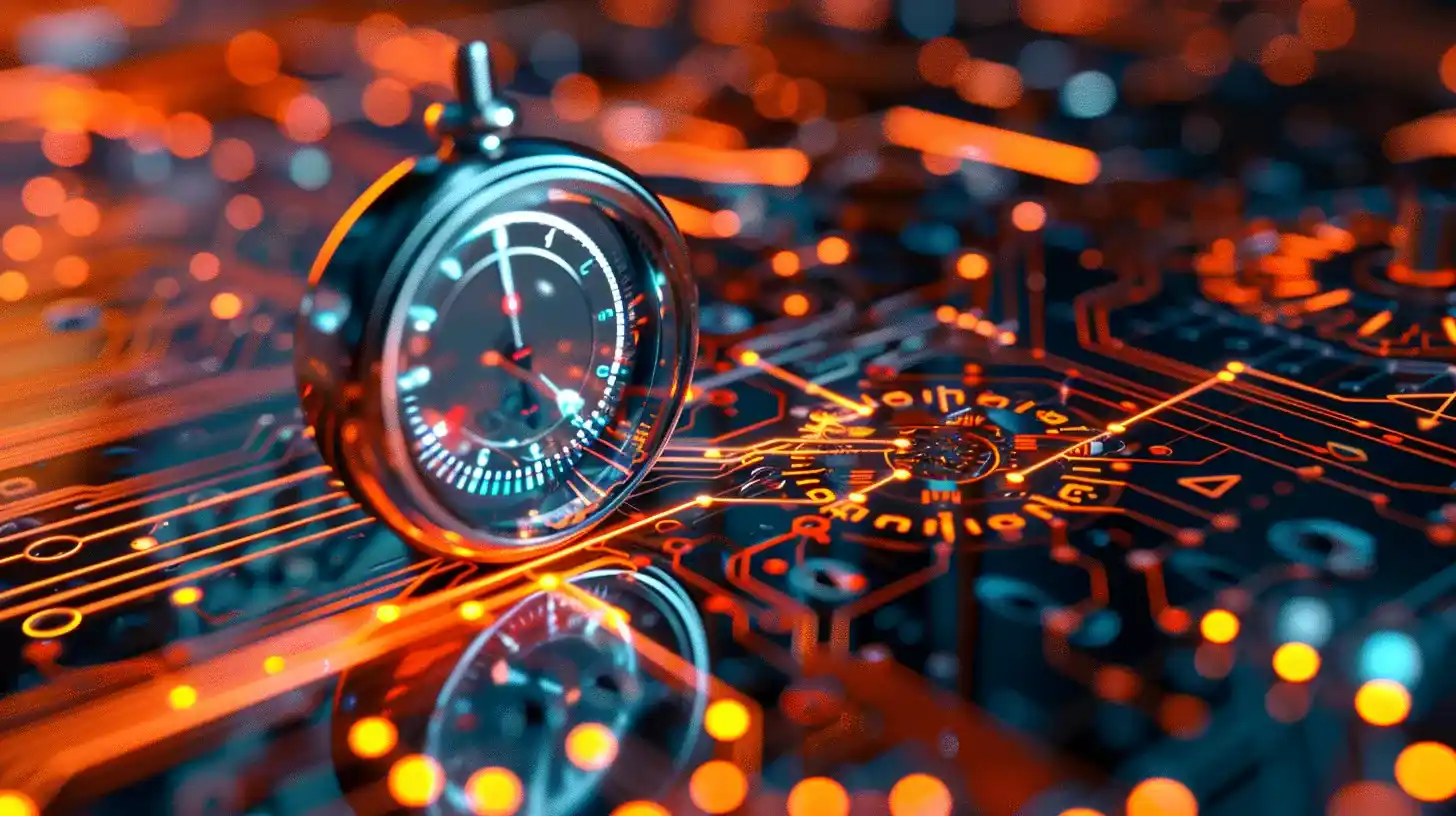Table of Contents
AI Development: Imagine AI surpassing human intelligence by 2027. Sounds like science fiction, right? Well, that’s the prediction shaking the world of Artificial Intelligence (AI) thanks to a recent essay by a fired OpenAI researcher. OpenAI is a prominent research lab dedicated to developing safe and beneficial AI. Lately, however, they’ve been in the news for a different reason: several key researchers have left the company, raising concerns about its direction.
One such researcher is Leopold Aschenbrenner, who used to work on OpenAI’s super alignment team, focused on mitigating potential risks from advanced AI. Aschenbrenner recently published a lengthy essay outlining his views on the future of AI, and let’s just say, it’s got people talking.
AI Development on Fast Forward: Buckle Up!
Aschenbrenner’s central argument is that AI development is rapidly accelerating, and we might not be prepared for the consequences. His essay dives into some pretty mind-blowing predictions:
- AGI by 2027? Aschenbrenner believes artificial general intelligence (AI that can tackle any intellectual task a human can) could be a reality by 2027. He points to the rapid advancements seen in recent AI models, like the jump from GPT-2 to GPT-4 (imagine going from preschooler to high school smarts in just four years!).
- Superintelligence Explosion: Here’s where things get wild. Aschenbrenner predicts that once we achieve AGI, we might see an “intelligence explosion” where AI rapidly surpasses human capabilities. This is because AI could potentially automate and accelerate its own research and development, leaving us in the dust.
- Trillion-Dollar AI Arms Race: Aschenbrenner suggests a massive financial investment is coming. Companies and governments will likely pour trillions into building powerful computer clusters to handle this next generation of AI.
- National Security Concerns: Buckle up for a potential AI cold war! Aschenbrenner predicts intense competition, especially between the US and China, to control and weaponize this powerful technology.
- Keeping Up with the Machines: But how do we control AI smarter than us? This is the “superalignment” problem Aschenbrenner highlights. We’ll need to figure out how to keep these super-intelligent AIs aligned with human values and goals – a challenge of epic proportions.
- A New World Order: Aschenbrenner expects AI to reshape society and the economy. Entire industries could be transformed as AI takes over tasks currently done by humans.
- Is this a cause for panic?
- Aschenbrenner’s predictions are certainly attention-grabbing, but are they realistic? While his work is based on publicly available information and personal opinions, it raises important questions. Should we be worried about AI development moving too fast?

Is this a cause for panic?
Aschenbrenner’s predictions are certainly attention-grabbing, but are they realistic? While his work is based on publicly available information and personal opinions, it raises important questions. Should we be worried about AI development moving too fast?
The Race for AI Supremacy: What’s at Stake?
The potential economic and security implications of a rapid AI arms race are significant. Governments, particularly the US according to Aschenbrenner, might become heavily involved in accelerating AI development. This race for AI supremacy could have serious consequences if not managed responsibly.
The Road Ahead: Guiding the AI Revolution
As we explore the frontiers of AI, it’s crucial to prioritize safety and responsible development. Open discussions about the future of AI and robust ethical considerations are essential. We need to ensure AI becomes a tool that uplifts humanity, not a threat to our future. After all, the future of AI is in our hands, and the choices we make today will determine how this powerful technology shapes our world.
So, Should We Hit the Brakes on AI Development?
There’s no easy answer. Here’s why:
- The Potential Benefits are Huge: AI has the potential to revolutionize healthcare, tackle climate change, and automate tedious tasks, freeing us up for more creative pursuits.
- Slowing Down Might Hinder Progress: Putting the brakes on research could leave us behind in the global race for AI dominance. Other countries, like China, might not be as concerned about ethical considerations and could forge ahead, potentially creating a dangerous power imbalance.

Finding the Right Balance
The key is finding a balance between rapid progress and responsible development. Here are some ways we can achieve this:
- Increased Transparency: Researchers and companies developing AI need to be more transparent about their work. Open discussions about potential risks and limitations are crucial for building public trust.
- Focus on Ethical AI: We need to establish clear ethical guidelines for AI development. This includes ensuring AI systems are unbiased and accountable, and don’t exacerbate existing social inequalities.
- Global Collaboration: The challenges and opportunities of AI are global in scale. International cooperation is essential to ensure responsible development and prevent an AI arms race.
The Future of AI: A Shared Responsibility
Aschenbrenner’s essay serves as a wake-up call. AI development is moving fast, and we need to be proactive in shaping its future. By fostering open discussions, prioritizing ethical considerations, and working together as a global community, we can ensure AI becomes a force for good, not a threat to humanity.
This is just the beginning of the AI conversation. What are your thoughts on Aschenbrenner’s predictions? Share your comments below and let’s keep the conversation going!